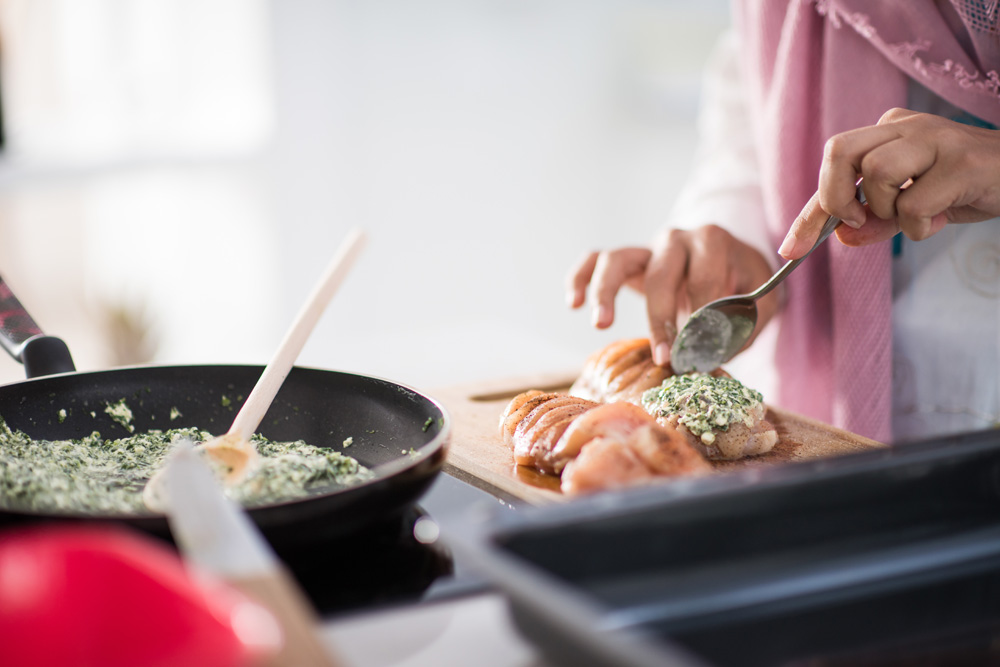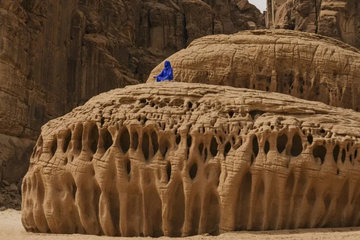
Every year in Ramadan, hundreds of stalls or ‘bastas’ pop up in cities around Saudi Arabia offering traditional food and drinks to passersby. While vendor’s licenses are required by municipalities for these stalls, many vendors skip the necessary documentation, and simply set up on a street corner to sell their wares.
In Jeddah, these stalls have become a prominent feature of Ramadan, providing seasonal employment for entrepreneurs who want to take advantage of the night long crowded streets full of people who will be fasting the following day. Traditionally run by men, this year, of the 815 stalls approved by the Jeddah Municipality, 350 are run by women.
Om Ahmed has been operating a stall for the last three years. A widow with four children, she appreciates the opportunity to make the extra money. “I think people are more comfortable buying food that is prepared by women as women are more particular about cleanliness.” Her stall, which is in Al Balad, or the old city center, sells fried potatoes and spicy liver sandwiches. The area has thousands of visitors every night, and Om Ahmed says she is busy from when she opens until when she closes.
There are many stalls set up on a Ramadan evening in Al Balad where men and women sell sweet date-filled pastries called mahmoul, often with complimentary cups of Arabic coffee. Some offer Adeni tea or Sahlab, a traditional drink made of creamy almond milk topped with crushed almonds. Other venders sell traditional pastries such as lamb or chicken sambousa, hummus or grilled meat and chicken kabobs. The atmosphere is festive and the air redolent with the delicious mouthwatering scents temping the passersby to stop and try them.

















